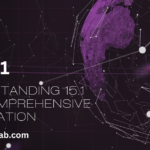Have you ever taken a medication that promised relief but ended up causing more harm than good? In the world of pharmaceuticals, Gabapentin is a widely prescribed drug for nerve pain and seizures.
However, my personal journey with Gabapentin took a dark turn, leading me to believe that it truly ruined my life.
Let me share my story with you in hopes of shedding light on the dangers of this seemingly innocent medication. So grab a cup of tea, get comfortable, and join me as I unravel the unsettling truth about Gabapentin.
What is Gabapentin?
Gabapentin, also known by its brand name Neurontin, is a medication primarily used to treat seizures and nerve pain.
It belongs to the class of drugs called anticonvulsants and works by affecting certain chemicals in the brain that are involved in seizures and pain transmission.
One of the key functions of Gabapentin is to calm overactive nerves and provide relief from conditions like neuropathic pain, diabetic neuropathy, fibromyalgia, and restless leg syndrome.
It’s often prescribed off-label for various other conditions such as anxiety disorders or migraines.
Despite its effectiveness in managing certain types of pain, Gabapentin can come with a range of side effects including dizziness, drowsiness, weight gain, and even mood changes.
Some individuals may experience more severe reactions or develop a dependence on the drug if not taken as directed by a healthcare professional.
It’s important for anyone considering taking Gabapentin to be aware of both its benefits and potential risks before starting treatment.
Consulting with a medical provider about any concerns or side effects experienced while taking this medication is crucial for ensuring safe usage.
Also read: Worldwide Science story Wonders | Musaris Login Made Simple: Everything You Step By Step Know in 2024
Benefits of Gabapentin
Gabapentin, an anticonvulsant medication, offers several benefits for various conditions:
1. Seizure Control: Gabapentin is used to help control certain types of seizures in people with epilepsy.
2. Nerve Pain Relief: It is also prescribed to relieve nerve pain that can occur after having had shingles (postherpetic neuralgia)
3. Restless Legs Syndrome (RLS) Treatment: Gabapentin, particularly in its extended-release form (Horizant), is used to treat restless legs syndrome, a condition characterized by discomfort in the legs and a strong urge to move them
4. Off-Label Uses: In addition to its FDA-approved uses, gabapentin is sometimes prescribed off-label for conditions such as certain anxiety disorders, alcohol craving and withdrawal symptoms, and as an adjunct to treating opioid dependence
Personal Experience with Gabapentin
When I was first prescribed Gabapentin for my nerve pain, I had high hopes that it would provide relief and improve my quality of life. At the beginning, it did help alleviate some of the discomfort I was experiencing, which was a welcome relief after months of constant pain.
However, as time went on, I started noticing changes in my mood and overall mental health.
I began feeling more anxious and irritable than usual, struggling to focus and feeling like a cloud of fog had settled over my mind. It was disheartening to realize that the medication meant to help me was actually making me feel worse in other ways.
The physical side effects also took a toll on my body, leaving me feeling drained and lethargic most days.
Despite these challenges, I kept taking Gabapentin because I believed it was necessary for managing my pain. Little did I know that trying to stop taking it would lead to even more difficulties…
The Negative Effects of Gabapentin on Mental Health

Gabapentin, a medication commonly prescribed for nerve pain and seizures, can have detrimental effects on mental health. For some individuals, including myself, the impact on mental well-being was profound.
The drug altered my mood, causing significant emotional instability and heightened anxiety levels.
Moreover, Gabapentin led to cognitive impairment, affecting my ability to focus and concentrate. It felt like a fog had descended upon my mind, making even simple tasks challenging to complete.
Sleep disturbances became a constant companion as well, with vivid nightmares disrupting what little rest I could manage.
The psychological toll of Gabapentin extended beyond these immediate symptoms; it triggered feelings of apathy and detachment from reality.
Coping with everyday stressors became overwhelming as the medication dulled my emotions and robbed me of genuine joy.
Navigating life under the cloud of Gabapentin’s mental health side effects was an uphill battle that left me feeling isolated and helpless.
Also read: Jojoy GTA 5 Download and Unraveling the Mysterious Storyline | Tips for Using CVS.com/OTCHS/MyOrder For Easy Prescription Refills
Physical Effects of Long-Term Gabapentin Use
Long-term use of Gabapentin can lead to a myriad of physical effects that may significantly impact one’s daily life. From weight gain and dizziness to coordination problems and blurred vision, the physical toll can be overwhelming.
Many individuals report experiencing issues with digestion, such as constipation or diarrhea, which can further exacerbate discomfort.
Additionally, some users have noted muscle weakness and joint pain as persistent side effects of prolonged Gabapentin use. These physical symptoms can make simple tasks challenging and diminish overall quality of life.
Moreover, the potential for developing tolerance to the medication over time may require higher doses for pain relief, increasing the likelihood of experiencing adverse reactions.
It is crucial for those considering or currently taking Gabapentin to be aware of these potential physical consequences and discuss them with their healthcare provider proactively.
Is Gabapentin Misused?
Gabapentin, originally intended to manage nerve pain and seizures, has unfortunately found its way into the realm of misuse. Some individuals may abuse Gabapentin by taking higher doses than prescribed or using it recreationally for its sedative effects.
This misuse can lead to dangerous consequences as the drug affects the central nervous system.
The addictive potential of Gabapentin is a growing concern in medical communities. Its calming and euphoric sensations can be enticing to those seeking an escape from reality or looking for a quick high.
The ease of access to Gabapentin through legitimate prescriptions also contributes to its misuse.
It’s crucial for both healthcare providers and patients to be aware of the risks associated with misusing Gabapentin. Seeking professional help and following prescribed guidelines are essential in avoiding the detrimental effects that come with misuse.
Withdrawal Symptoms and the Struggle to Quit
When I decided to stop taking Gabapentin, I had no idea what was in store for me. The withdrawal symptoms hit me like a freight train, leaving me feeling anxious, irritable, and unable to sleep. It felt like my body was rebelling against me.
The physical effects were relentless – from nausea and dizziness to headaches and muscle pain. Every day felt like a battle just to get through the intense discomfort.
My mind was foggy, making it hard to concentrate or think clearly.
As the days passed, the cravings for Gabapentin became overwhelming. It was a constant struggle between wanting relief from the withdrawal symptoms and knowing that continuing with the medication would only prolong my suffering. Quitting Gabapentin was one of the hardest challenges I’ve ever faced.
Despite the difficulties, seeking help and support made all the difference in my journey towards recovery. With guidance from healthcare professionals and loved ones by my side, I slowly but surely started regaining control over my life again.
Why Gabapentin is Still Being Prescribed Despite Its Dangers
Despite the potential dangers associated with Gabapentin, it continues to be prescribed for various medical conditions. One reason for its continued use is its effectiveness in treating nerve pain and seizures. Many healthcare providers weigh the benefits against the risks before prescribing this medication.
Additionally, some patients may experience relief from their symptoms when taking Gabapentin, which can improve their quality of life.
The drug’s affordability compared to other treatment options also plays a role in why it is still prescribed.
Moreover, there may be limited awareness among both patients and healthcare professionals about the full extent of Gabapentin’s side effects. This lack of information could contribute to its ongoing prescription rates.
While Gabapentin poses risks, many individuals continue to benefit from its therapeutic effects under careful supervision by medical professionals.
Seeking help and recovery
After realizing the detrimental impact Gabapentin had on my life, I knew it was time to seek help and start the journey towards recovery. Admitting that I needed support was a crucial first step in overcoming the challenges brought on by this medication.
Seeking help can come in various forms – therapy, support groups, or even talking to loved ones about your struggles. It’s essential to surround yourself with understanding individuals who can offer guidance and encouragement along the way.
Recovery is not a linear process; there will be ups and downs as you navigate through withdrawal symptoms and mental health effects. Stay committed to your well-being and trust in the recovery process, no matter how challenging it may seem at times.
Remember, seeking help is not a sign of weakness but rather a courageous step towards reclaiming control over your life. Recovery is possible with determination, resilience, and the right support system by your side.
Alternative Treatments for Nerve Pain Management
Living with nerve pain can be debilitating, but there are alternative treatments that may offer relief beyond Gabapentin. Acupuncture, a traditional Chinese medicine practice involving the insertion of thin needles into specific points on the body, has shown promise in alleviating nerve pain by promoting natural healing processes and reducing inflammation.
Physical therapy focuses on strengthening muscles and improving flexibility to reduce pressure on nerves, which can help manage chronic pain over time.
Another option is transcutaneous electrical nerve stimulation (TENS) therapy, where a device delivers low-voltage electrical currents to targeted areas to disrupt pain signals sent to the brain. Herbal supplements like turmeric or capsaicin cream applied topically have anti-inflammatory properties that may provide relief for some individuals.
Cognitive-behavioral therapy (CBT) can also be beneficial in managing the emotional toll of living with chronic pain by teaching coping mechanisms and relaxation techniques.
Exploring these alternatives under medical guidance may lead to finding a personalized approach to managing nerve pain effectively without relying solely on medications like Gabapentin.
Conclusion and Advice for Those Considering or Taking Gabapentin
If you’re considering or currently taking Gabapentin, it’s crucial to be informed about its potential risks and side effects. Make sure to have open communication with your healthcare provider about any concerns or negative experiences you may be having while on the medication.
Seeking a second opinion or exploring alternative treatment options could help in finding a solution that works best for you.
Remember that everyone reacts differently to medications, so what may work for one person might not work for another.
Trust your instincts and prioritize your mental and physical well-being above all else. Don’t hesitate to seek support from friends, family, or a therapist if you’re struggling with the effects of Gabapentin.
Stay proactive in managing your health and advocate for yourself when it comes to making decisions about your treatment plan. Your journey towards recovery and finding the right path may take time, but staying committed to prioritizing your wellness is key.
frequently asked questions (FAQs) about Gabapentin:
Q1:What conditions does Gabapentin treat?
Gabapentin is FDA-approved to treat epilepsy (seizures) and neuropathic pain (nerve pain). It is also used off-label for other conditions such as anxiety disorders, restless legs syndrome, and migraine prevention.
Q2:How should I take Gabapentin?
Gabapentin is usually taken orally with or without food. Follow your doctor’s instructions carefully, and do not stop taking the medication suddenly without medical advice.
















